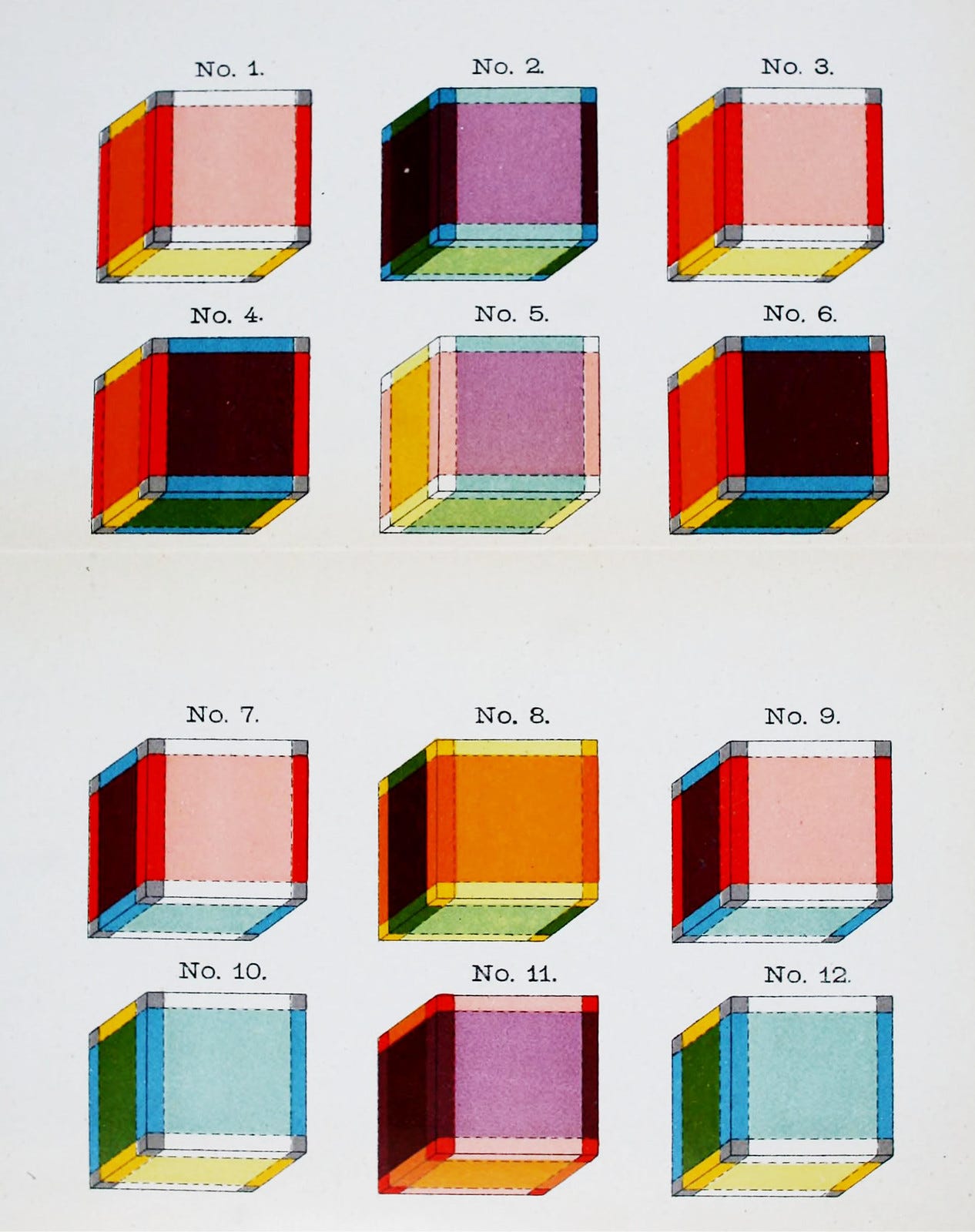Good jargon, bad jargon
How specialized vocabulary plays a key role in growing knowledge
The analogous thing in non-Cantorian set theory is to choose the new set a as a nonconstructible set, then to generate a new model N consisting of all sets obtained by the operations of restricted set theory applied to a and to the sets in M.1
This is the first sentence of a random paragraph of a random page of a random book on my shelf. In particular, this comes from a wonderful book called The Mathematical Experience. Other non-fiction books, and some fiction books, are full of words and phrases that are not immediately accessible to general readers.
In this mathematical case, it is unlikely that you know what is meant by “non-Cantorian” or “set theory” or “nonconstructible,” and so on. It is precisely this (un)likelihood that makes the terms specialized: they are not general terms that a randomly selected person would know. Rather, they are terms frequently employed by people in specific domains. In this case, mathematics.
Jargon is a synonym for specialized vocabulary, but carries a negative connotation. If you spoke to a non-mathematician exactly as the quote reads, they might ask you to “repeat that without jargon,” or “in simple terms.” Now let’s see what happens when we do so:
The analogous thing in mathematical theories of groups of things without repeating any of those things that reject the notion that a group of things without repetition can be made of one thing in the groups that are things in any group without repetition of groups without repetition, and where there is at least one thing in each of those groups, is to choose the new group of things without repeating any, call it …
That slog is the result of ‘translating’ “The analogous thing in non-Cantorian set theory is to choose the new set ”. While you may not have understood the sentence with specialized vocabulary, at least you had a chance. After learning the vocabulary, you could understand it with ease. In contrast, this ‘translation’ is unwieldy and unclear. There are bad aspects of specialized vocabulary, but there are good aspects as well.

This is the first of a series of essays in which I examine the ways by which we can and should relate to specialized vocabulary. Ultimately, how we treat specialized vocabulary depends on the context of its use. This time, I write about how specialized vocabulary helps in growing knowledge.
Specialized Vocabulary and Growing Knowledge
Even though bad practices sometimes endure the passage of time, in general, good practices prevail. In the phenomenon of evolution, ‘good’ adaptions end up proliferating in organisms while the ‘bad’ adaptions end up dying out—unless, by a stroke of luck, some other factor helps maintain that adaption.
Given that people with special knowledge tend to use specialized vocabulary, we should expect its use to have some positive consequences. We can expect specialized vocabulary to be ‘good’ adaptions. Indeed, specialized vocabulary is an important factor in growing knowledge embedded in layers of context.
You can see this context on display in my translation of the excerpt from The Mathematical Experience. I had to find non-specialized terms for non-Cantorian set theory, and in doing so, drew back the layers of concepts upon concepts. These layers make up the context in which non-Cantorian set theory is embedded, allowing the phrase to make sense to those with that specialized knowledge.
There are two important ways in which specialized vocabulary enables not just knowledge but the growth of knowledge in these knowledge domains. The first is that specialized vocabulary permits finer communication, and the second is that specialized vocabulary enables deeper understanding.
Specialized vocabulary helps in precise communication2. Even though I could replace every instance of ‘set’ with “group of things without any of those things repeating,” it is not very precise. For instance, within mathematics, ‘set’ is a concept distinct from ‘collection,’ and “group of things…” could apply to either.
Another benefit of the precision afforded by specialized vocabulary is the clarity and perspective it brings. When people have to work with a lot of different and complex layers of concepts, specialized vocabulary is gradually created to make handling the concepts easier. Once they are easier to handle, they can be brought together in different ways. Re-organizing concepts can reveal new patterns, furthering the understanding even deeper within a knowledge domain.
Sometimes, this ‘shortcut’ into a concept is a nice phrase rather than a word. In some contexts of writing or thinking, where precision is guaranteed in some other ways, you can get away with whatever text you would like, so long as there is a link between what you handle (word, phrase, sentence) and what you refer to (complex concept network).
In a Zettelkasten, you can treat individual notes as referents.3 As I refer to concepts within my Zettelkasten, I quite literally link some text to another note. It does not matter whether the note I am linking to is some thoughts I had about decision theory, whether it was a small note I recorded while on the bus, or this very essay. The cherry on top is that I do not have to scratch my brain to remember what a specific term is, or what “what I thought on May 6th” means. I can simply follow the link and read the note I had written.
Specialized vocabulary is clearly important. There are instances, like the quote from the Mathematical Experience, where it is required. It plays a key factor in building deep understanding. However, it might play an equally important role in preventing us from growing knowledge. Next time, I will take a look at how specialized vocabulary can get in the way of attempts at clarity and understanding.
The Mathematical Experience by Philip J. Davis and Reuben Hersh. This quote was randomly pulled from page 234.
This is drawn from a greater insight of Antoine Lavoisier highlighted by Mortimer Adler/Charles van Doren in How to Read a Book on page 260.
Andy Matuschak’s note “Evergreen note titles are like APIs” is the source of this insight. I highly recommend exploring his Notes and other works, especially if you are interested in the subject of learning.




Good explanation of why not everything can be simplified into a 100-word vocabulary!
Well said!